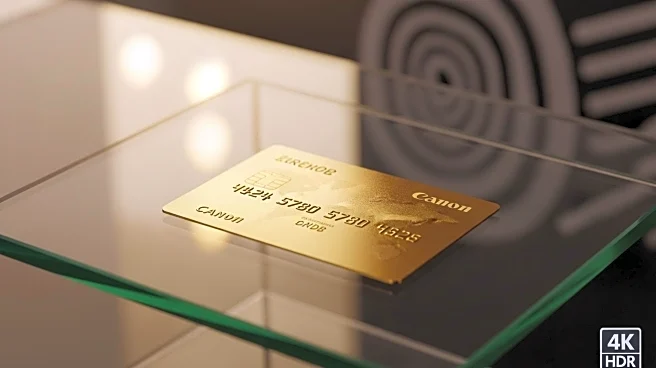What's Happening?
President Trump has announced the launch of the Gold Card, a visa program aimed at attracting wealthy individuals from around the world. The Gold Card, initially priced at $5 million, has been reduced to $1 million, making it one of the most affordable golden visas globally. The program promises quick residency approvals and access to U.S. systems, including education and healthcare. The initiative is expected to generate significant interest among the global elite, with immigration attorneys reporting a surge in inquiries. The Gold Card is part of a broader strategy to raise federal revenue, alongside increased fees for H-1B visas.
Why It's Important?
The introduction of the Gold Card is significant as it positions the U.S. as a competitive destination for wealthy individuals seeking residency options. By lowering the price, the program becomes more accessible compared to similar visas offered by other countries, potentially increasing the influx of high-net-worth individuals. This could lead to increased investment in the U.S. economy and bolster federal revenue. However, the program's legal framework may face challenges, as immigration law is typically governed by Congress. The initiative reflects a strategic move to leverage the global visa market amid rising geopolitical uncertainties.
What's Next?
The Gold Card program is expected to face legal scrutiny and potential challenges from Congress, given its unconventional approach to immigration policy. As the program rolls out, stakeholders will be watching closely to see how it is implemented and whether it can withstand legal challenges. The success of the program will depend on its ability to attract applicants and navigate the legal landscape. If successful, it could pave the way for similar initiatives aimed at attracting global wealth to the U.S.









